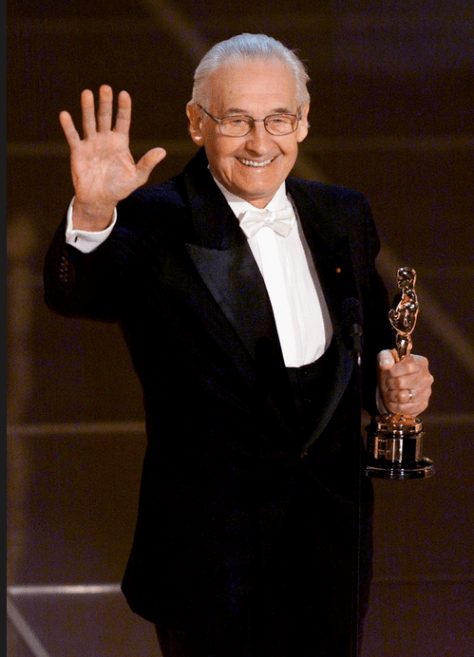Andrzej Wajda the acclaimed Polish director whose films reflected his country’s turbulent history, has died at the age of 90.
Reports in Poland said he died in hospital of lung failure after being put into a medically induced coma in recent days.
Director of films including Kanał, Katyń and the Palme d’Or-winning Man of Iron, Wajda was also awarded an Oscar for lifetime achievement

Wajda, who was awarded an Oscar for lifetime achievement in 2000, became a filmmaker only after being rejected by the army in 1939.
He attended Poland’s renowned Łódź film school after the second world war. His career took flight after winning the jury special prize at the Cannes film festival in 1957 for Kanał (Canal), about the doomed 1944 Warsaw uprising by Polish partisans against the Nazis.

A still from Wajda’s 1957 film, Kanał. (Photo: Allstar/Kingsley-Int)
The award allowed Wajda to make his next film, Popiół i Diament (Ashes and Diamonds) in 1958 and cemented his position in Polish film.
In the 1970s Wajda turned to Polish literature for inspiration for Brzezina (Birch Wood, 1970), Wesele (The Wedding) two years later and Ziemia Obiecana (The Promised Land) in 1974.
At the 1977 Cannes festival, he screened Człowiek z marmuru (Man of Marble), a film critical of communist Poland.
It was followed three years later by Człowiek z żelaza (Man of Iron), focused on the rise of Poland’s anti-communist Solidarity trade union. That film won the Palme d’Or at Cannes in 1981, even as Poland’s then-communist regime cracked down on Solidarity and imposed martial law.
“The day of the Palme was a very important day in my life, of course. But I was aware that this prize wasn’t just for me. It was also a prize for the Solidarity union,” Wajda said in an interview in 2007.
The filmmaker donated the prestigious award to a Kraków museum, where it remains on display next to his other prizes, including the lifetime achievement Oscar.

The 1981 Palme d’Or saved Wajda from being jailed by the communist regime – a fate that befell many of the director’s friends and colleagues – including Solidarity’s leader, Lech Wałęsa.
Wajda’s opposition to the regime of Poland’s communist leader, general Wojciech Jaruzelski, led him to make films abroad, including Danton (1983) in France, starring Gérard Depardieu.
Eine Liebe in Deutschland (A Love in Germany, 1986) followed in Germany and Wajda’s interpretation of Dostoyevsky’s The Possessed (1998) was shot in France.
After the collapse of communism in Poland in 1989, Wajda returned to the country’s wartime history, focusing on stories suppressed by the communists. Korczak (1990) details the fate of Janusz Korczak, a pre-war Polish-Jewish children’s author and physician who died in the Holocaust.
With Pierścionek z orłem w koronie (The Crowned-Eagle Ring, 1993), Wajda once again turned to the 1944 Warsaw uprising. Wielki Tydzień (Holy Week, 1995) examined the 1943 Warsaw ghetto uprising – the doomed rebellion against the Nazis by Jewish partisans.
One of his last films, Katyń – nominated for an Oscar in 2008 – tells the story of his father, Jakub Wajda, who was one of 22,500 Polish officers killed by the Soviets in 1940 in the Katyn forest. Last year he directed Powidoki, which is Poland’s official entry for this year’s Academy Awards.
(Source: http://www.theguardian.com)






